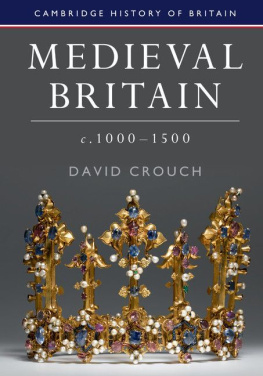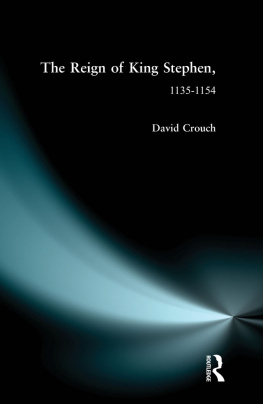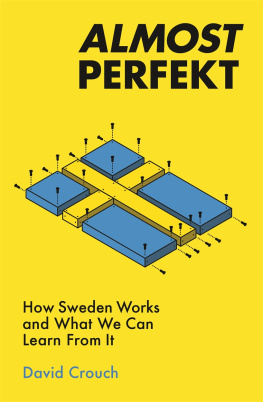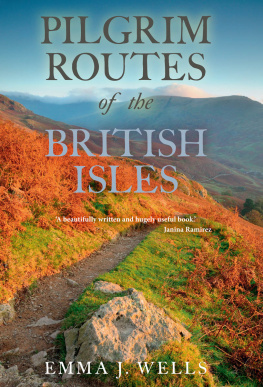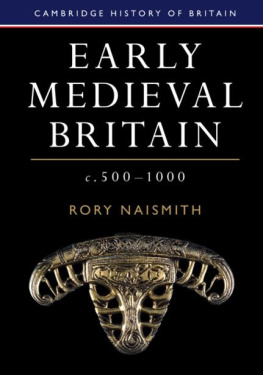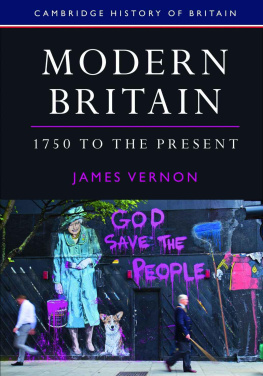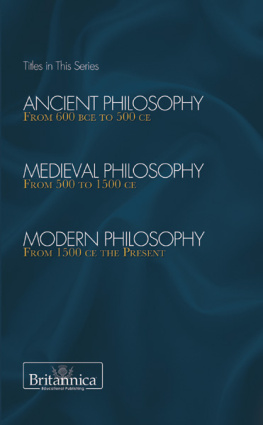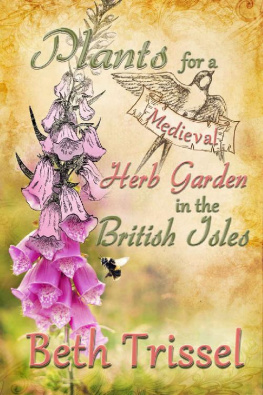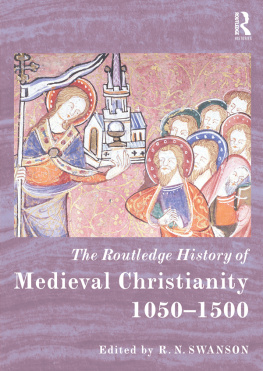Medieval Britain, c . 10001500
Though England was the emerging super-state in the medieval British Isles, its story is not the only one Britain can offer; there is a wider context of Britain in Europe, and the story of this period is one of how European Latin and French culture and ideals colonised the minds of all the British peoples. This engaging and accessible introduction offers a truly integrated perspective of medieval British history, emphasising elements of medieval life over political narrative, and offering an up-to-date presentation and summary of medieval historiography. Featuring figures, maps, a glossary of key terms, a chronology of rulers, timelines and annotated suggestions for further reading and key texts, this textbook is an essential resource for undergraduate courses on medieval Britain. Supplementary online resources include additional further reading suggestions, useful links and primary sources.
David Crouch is Professor of Medieval History at the University of Hull. He is the author of many books, including The Reign of King Stephen (2002), The Birth of Nobility: Constructing Aristocracy in England and France, 10001300 (2005), The Normans (2005), The English Aristocracy, 10701272: A Social Transformation (2011), Lost Letters of Medieval Life: English Society, 12001250 (with Martha Carlin, 2013), The Acts and Letters of the Marshal Family 11561248 (2015) and William Marshal (3rd edn, 2016).
Cambridge History of Britain
The Cambridge History of Britain is an innovative new textbook series covering the whole of British history from the breakdown of Roman power to the present day. The series is aimed at first-year undergraduates and above, and volumes in the series will serve both as indispensable works of synthesis and as original interpretations of Britains past. Each volume will offer an accessible survey of political, social, cultural and economic history, charting the changing shape of Britain as a result of the gradual integration of the four kingdoms and Britains increasing interaction and exchange with Europe and the wider world. Each volume will also feature boxes, illustrations, maps, timelines and guides to further reading as well as a companion website with further primary source and illustrative materials.
Volumes in the series
I Early Medieval Britain
II Medieval Britain, c . 10001500
III Early Modern Britain, 14501750
IV Modern Britain, 1750 to the Present
Cambridge History of Britain
Medieval Britain, c . 10001500
David Crouch

University Printing House, Cambridge CB2 8BS, United Kingdom
One Liberty Plaza, 20th Floor, New York, NY 10006, USA
477 Williamstown Road, Port Melbourne, VIC 3207, Australia
4843/24, 2nd Floor, Ansari Road, Daryaganj, Delhi 110002, India
79 Anson Road, #0604/06, Singapore 079906
Cambridge University Press is part of the University of Cambridge.
It furthers the Universitys mission by disseminating knowledge in the pursuit of education, learning, and research at the highest international levels of excellence.
www.cambridge.org
Information on this title: www.cambridge.org/9780521190718
DOI 10.1017/9780511844379
David Crouch 2017
This publication is in copyright. Subject to statutory exception and to the provisions of relevant collective licensing agreements, no reproduction of any part may take place without the written permission of Cambridge University Press.
First published 2017
Printed in the United Kingdom by TJ International Ltd. Padstow Cornwall
A catalogue record for this publication is available from the British Library.
Library of Congress Cataloging in Publication Data
Names: Crouch, David, author.
Title: Medieval Britain, c . 10001500 / David Crouch.
Description: New York : Cambridge University Press, 2017. | Series: Cambridge
history of Britain ; 2 | Includes bibliographical references.
Identifiers: LCCN 2016041197 | ISBN 9780521190718 (hardback)
Subjects: LCSH: Great Britain History Medieval period, 10661485. | BISAC:
HISTORY / Europe / Great Britain.
Classification: LCC DA175 .C76 2017 | DDC 941.02/1dc23
LC record available at https://lccn.loc.gov/2016041197
ISBN 978-0-521-19071-8 Hardback
ISBN 978-0-521-14967-9 Paperback
Additional resources for this publication at www.cambridge.org/crouch
Cambridge University Press has no responsibility for the persistence or accuracy of URLs for external or third-party Internet Web sites referred to in this publication and does not guarantee that any content on such Web sites is, or will remain, accurate or appropriate.
Contents
Figures
Maps
Preface
This book is intended as an introduction to half a millennium of British history for degree-level students, though its breadth of coverage would make it useful also as a senior school text. It is not intended as a reference book so much as a guide to broad social, political and cultural change in a very long period of history. Because of the complexity of the intertwining story of the three nations of Great Britain (the English, Scots and Welsh), the emphasis of the book is on themes rather than events. It is not a reign-by-reign account of the kingdoms of Britain. A thematic approach does make more clear what political histories often fail to, that the history and lives of those three peoples did have a powerful British rather than national dimension. Indeed, looked at in this way the period can be seen to have experienced a major shift in the idea of what Britain was. As a result, the book is organised in two narrative sections: before and after what is called here the great divorce, the collapse of the ancient understanding of the British peoples as being united under the informal presidency of the English king. After 1306 Britain was partitioned between two mutually hostile, warring states: England and Scotland. There was no healing of the rift within the rest of the period of this book. The thematic sections, however, make plain that the unrelenting hostility was an overlay on societies and states which were otherwise responding to the same developments in culture, agriculture, economy, disease and social change, and that all three peoples were interacting with forces beyond the British Isles. Ireland (which is part of the British Isles, but not Great Britain) is not specifically addressed in this study, as that would have made the book unmanageable and indeed incoherent. Nonetheless, reference is made to developments concerning Ireland which have a British context.
Within this book there are some major changes which have a significance for vocabulary. One is the change in understanding of the Gaelic kingdom of the north, which under David I (11241153) moved into the mainstream of European monarchies. So, before his reign, it is called by its ancient name of Alba, and after by the name it was increasingly given within and outside its borders, Scotland ( Scotia ). Likewise for England, the ruling dynasty which acquired the throne in 1154 and carried on until the very end of the period is called the Angevins while it still maintained a claim to its ancient homeland in northern France (Anjou) and Plantagenets thereafter (with no reference to its Lancastrian and Yorkist branches which became important after 1399). At the end of each section are reading lists, with those called Key Texts: landmark studies which offer the most authoritative as well as broadest coverage. Further Reading includes important studies which have informed the writing of the chapter and which can form the basis for student research. The online companion site for this book offers further opportunities for research, including primary source material.

